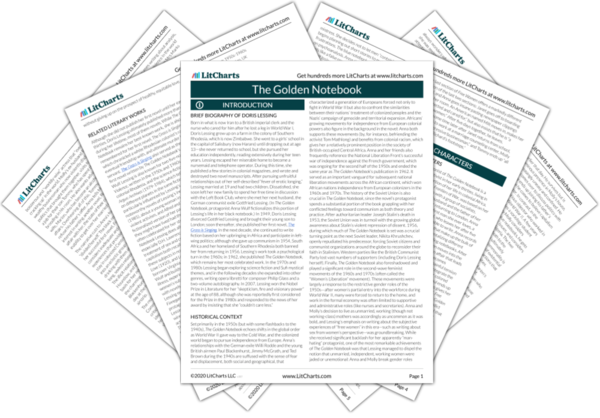LitCharts assigns a color and icon to each theme in The Golden Notebook, which you can use to track the themes throughout the work.
Fragmentation, Breakdown, and Unity
Communism and Disillusionment
Action, Freedom, and Moral Courage
Fact, Fiction, and Authorship
